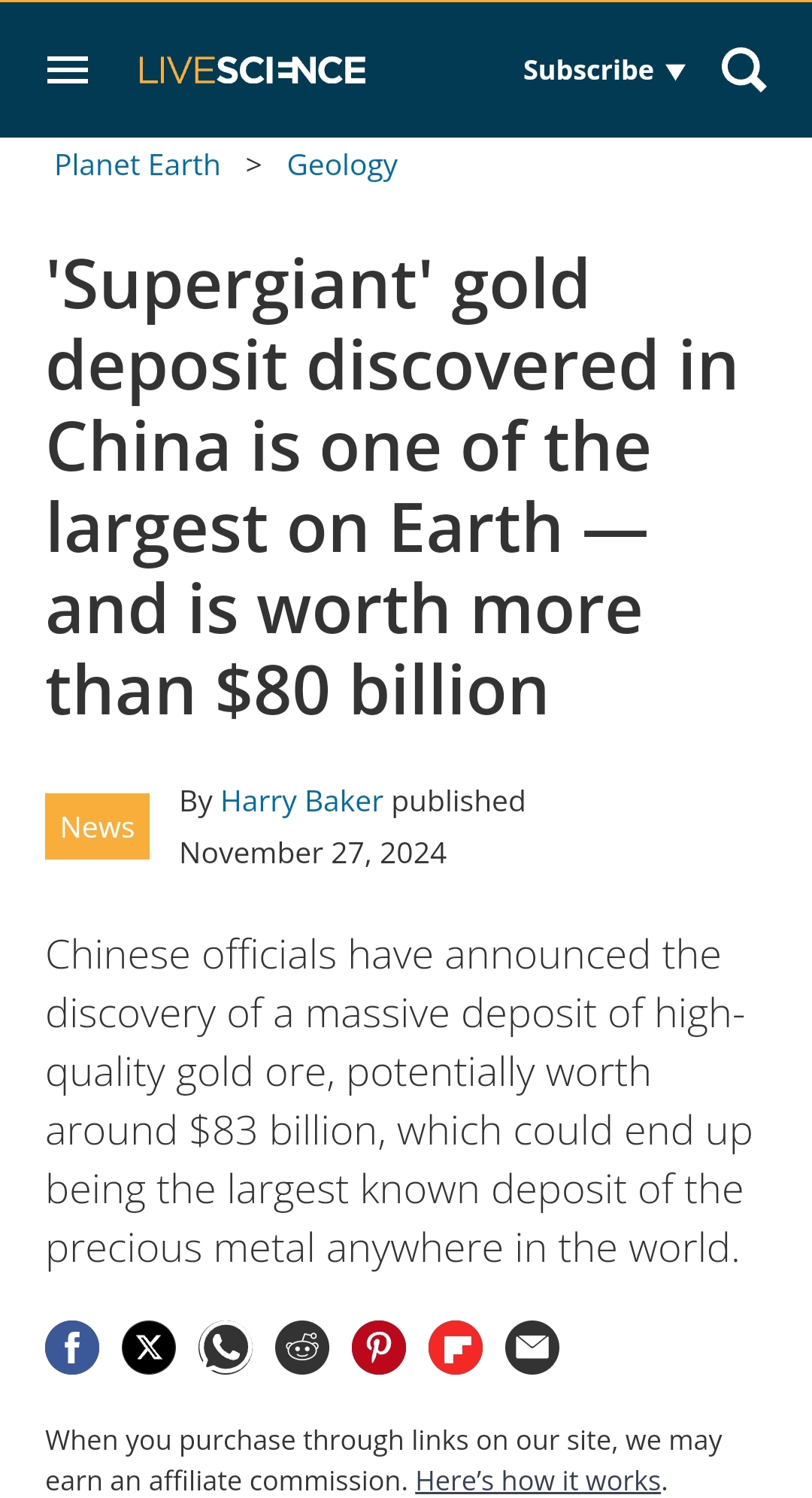China’s Gold Discovery: Implications for Global Gold Prices and Market Dynamics

The recent discovery of a massive gold deposit in China, valued at over $80 billion, has sparked widespread interest in its potential implications for global gold prices. As one of the largest known gold reserves on Earth, the deposit could significantly impact the global gold market in both the short and long term. However, the degree of this impact will depend on a variety of factors, including the timeline for mining, global demand, and broader economic conditions.
In the short term, the announcement of such a vast deposit is unlikely to cause a drastic change in gold prices. Mining operations for a deposit of this size typically take years to develop. The processes of exploration, extraction, refining, and distribution are highly complex and capital-intensive. As a result, the immediate availability of this gold on the market remains limited. Nevertheless, the news may lead to speculative movements in the gold market. Investors may perceive the potential for increased future supply, which could temporarily suppress prices. However, such effects are likely to be short-lived and influenced by other prevailing market dynamics, such as inflation, interest rates, and geopolitical stability.
In the long term, once mining operations successfully extract and process gold from this deposit, the increased supply could place downward pressure on global gold prices. The extent of this impact will largely depend on the pace of production and the size of the deposit relative to global demand. Gold is widely used in various industries, including jewelry, electronics, and as a hedge against economic instability. If demand continues to grow alongside supply, the price impact could be muted. Conversely, if demand stagnates or declines, the influx of gold could exacerbate a surplus, leading to lower prices.
China’s role as one of the largest gold consumers further complicates the equation. A significant portion of the extracted gold may be retained within the country for domestic use, particularly given China's strategic interest in bolstering its gold reserves. This could reduce the amount of gold entering the international market, thereby limiting its impact on global prices. Additionally, factors such as mining costs and environmental considerations could influence the economics of production and distribution.
It is also important to consider external factors that may counterbalance the potential price decline. Gold prices are heavily influenced by macroeconomic trends, including inflation, currency fluctuations, and central bank policies. During periods of economic uncertainty, gold often serves as a safe-haven asset, driving demand and supporting prices regardless of supply increases.
In conclusion, the discovery of this supergiant gold deposit in China has the potential to influence global gold prices, but the impact will unfold gradually over the coming years. While speculative movements may occur in the short term, the long-term effects will depend on the timeline for mining operations, global demand trends, and the broader economic landscape. Ultimately, the interplay of these factors will determine whether this discovery leads to a sustained shift in the gold market or merely adds another chapter to the complex dynamics of this valuable resource.
As they say in St. Louis, "Show me."
83 billion is not what it used to be, I think it won't matter much.
!pimp